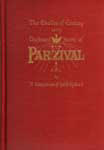100th
MP

|
THE
100th
MONKEY
PRESS |
|
|
|
Limited Editions by Aleister Crowley & Victor B. Neuburg |
|
Bibliographies |
|
Download Texts
»
Aleister
Crowley
WANTED !!NEW!!
|
|
THE CHALICE OF ECSTASY |
|
»» Download Text «« |
Image |
|||||||||||||||||||
| Title: |
The Chalice of Ecstasy: being a
Magical and Qabalistic Interpretation of the
Drama of Parzival/by a Companion of the Holy
Grail sometimes called Frater Achad.
|
Cover
Spine Title Page
Frontispiece
Dedication Page |
||||||||||||||||||
|
Print |
|
|||||||||||||||||||
| Publisher: | Yogi Publication Society. | |||||||||||||||||||
| Printer: | ||||||||||||||||||||
| Published At: | Chicago, Illinois. | |||||||||||||||||||
| Date: | circa September 1923. | |||||||||||||||||||
| Edition: | First Edition. | |||||||||||||||||||
| Pages: |
viii + 82 Pages. |
|||||||||||||||||||
| Price: |
$2.00. |
|||||||||||||||||||
| Remarks: |
|
|||||||||||||||||||
| Pagination: |
|
|||||||||||||||||||
| Contents: |
- Introduction - Point I. The Coming of Parzival - Point II. The Tempting of Parzival - Point III. The Redemption of the Redeemer - Qabalistic Conclusion |
|||||||||||||||||||
|
Author’s |
|
|||||||||||||||||||
|
Other |
||||||||||||||||||||
| Reviews: |
Exactly thirteen years ago we read for the first time the story of Tannhauser, retold by one sometime called Frater Perdurabo. We have always been thankful that such was our first introduction to Wagner, and incidentally to Rosicrucian Philosophy. We could wish that this present volume of Frater Achad’s might meet with a similar fate, and be the means of introducing many new-comers to the story of Parzival, which “is not subject to time or circumstance, and need not be sought outside the human heart that has learned to beat in time and tune with the soul of the world.” “It is,” says Frater Achad, “in the hope of awakening some spark of the smouldering fire of this inner consciousness in the hearts of those who may read these lines—not having previously understood the legend—and from that spark enkindling a great fire that will burn up the veils which hide man from Himself—from God—that I have dared to add these fragments to the great mass of Grail Literature already given to the world.” We wish him God-speed. “Was Wagner a great Qabalist? Who can say?” To continue quoting Frater Achad, “rather would we suggest that being inspired, this drama must of necessity conform to truth on all planes.” “The most important points of the drama are connected with the Cup—Understanding—Binah the third Sephira; the Spear—Will—Wisdom—Chokmah the second Sephira, and the Heart—the Castle of the Grail—Tiphereth the sixth Sephira. If we examine these spheres on the Tree of Life we find they form a Descending Triad representing the Bowl of the Chalice of Ecstasy, the points of which are 326. Now 326 is the Numeration of Jeheshuah, the God-Man or Redeemer. We are also told that probably the oldest spelling of Parzival is Parchval, whose numeration is also 326. The word Jeheshuah symbolizes the descent of “Shin.” the letter of the Holy Spirit, into the Four-lettered word I.H.V.H., the Ineffable Name and the Formula of the Four Elements. Thus Parchval symbolizes the whole process perfectly.” The enumeration of the other characters in the story and the enumeration of the word Grail are equally remarkable, but we purposely leave this for future readers to discover. How Parzival, after diverse tribulations, completes the circle and, returning to the Temple of the Grail, heals Amfortas with the Holy Spear and is himself crowned king, space does not permit us to tell. Apart from the charm of Wagner’s story, we find in Frater Achad’s version a homily well worth reading. We wish that Dean Inge or some other well-known critic would read the book and serve it up again to the more intelligent among the masses: it would ensure to the volume the widespread reading it deserves. E. F. W. —The Occult Review, September 1923. ______________________________
In these days, meaning of course, the particularly current passages of the calendar, when the output of occult literature of more than ephemeral value seems so slight, it is gratifying indeed, to those who have a fondness for that type of opus to come across Frater Achad’s “THE CHALICE OF ECSTASY.” The book purports to be a representation of the “inmost secret of PARZIVAL,” and to have been written by “A Companion of the Holy Grail.” Undoubtedly both claims are manifest. Even those whose familiarity with the things of the Temple is largely confined to gleanings gathered up as crumbs from those who have passed the portals know the signs—and the signs are many and unmistakable in this work. The evident sympathy of the writer for the literary and musical symbolism embodied in Wagner’s “great work” proves him a student, and his keen analysis of their spiritual and occult import stamp him as indeed “a companion of the Grail.” Filled with profound scholarship and the wide range of familiarity with kindred philosophical systems, as would be expected of the erudite Adept, the allusions are nevertheless not beyond easy comprehension, which enhances the pleasure to be found in reading the book. It is handsomely printed and bound, and is a credit to its publishers, the Yogi Publication Society. Frater Achad is to be complimented. So are those fortunate enough to secure and read his book. —The Occult Digest, December 1925. |
|||||||||||||||||||



